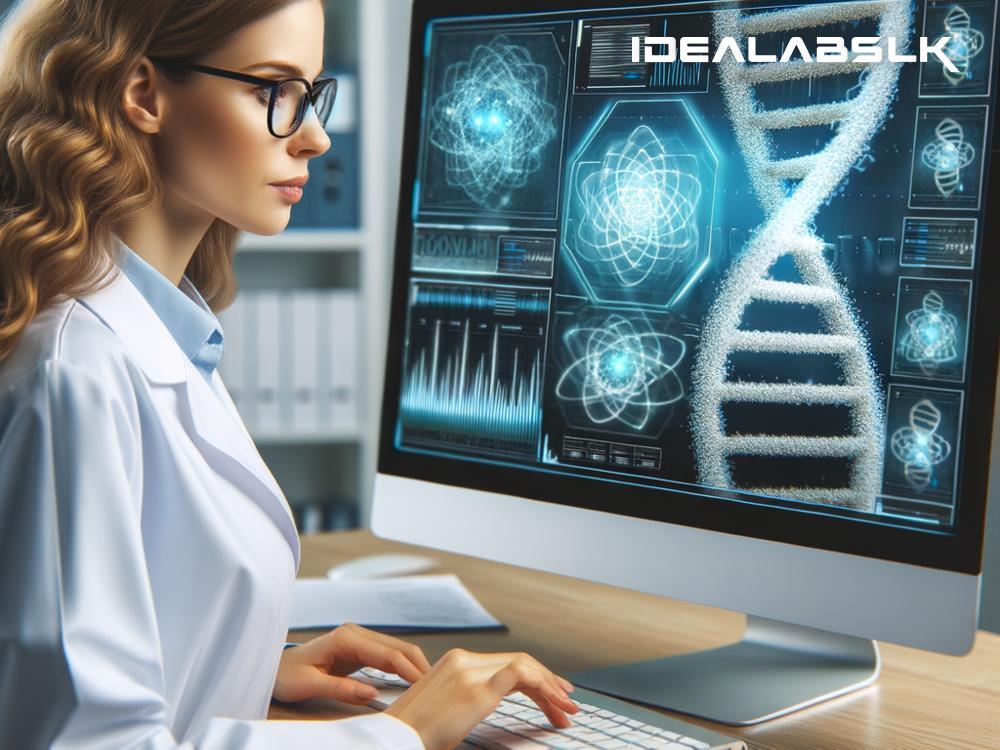Unraveling Our DNA: How AI is Revolutionizing Genetic Testing in Healthcare
In the vast landscape of healthcare, a profound transformation is underway, merging the intricate world of genetics with the cutting-edge realm of artificial intelligence (AI). This fusion is revolutionizing how we approach genetic testing, enhancing its accuracy, speed, and overall impact on patient care. Let's embark on an enlightening journey to understand how AI is reshaping the future of genetic testing in healthcare.
The Genetic Blueprint
Our genetic makeup is like a complex instruction manual that dictates everything from our eye color to our susceptibility to certain diseases. For years, healthcare professionals have been deciphering this manual to diagnose and treat genetic disorders. However, the traditional process of genetic testing was like searching for a needle in a haystack, time-consuming and often imprecise.
The Advent of AI in Genetics
Enter artificial intelligence, a game-changer in the realm of genetics. AI, with its ability to learn and adapt, is enhancing the efficiency and precision of genetic testing like never before. But how exactly does AI accomplish this feat? Let's break it down.
Accelerating the Pace
Imagine trying to read a book but having to decipher each letter slowly. That's how traditional genetic testing methods worked. AI, on the other hand, is like a speed-reader. It can swiftly analyze vast amounts of genetic data, reducing the time required to obtain results from weeks to merely days or even hours. This rapid analysis is crucial, especially for conditions where time is of the essence.
Enhancing Accuracy
Accuracy in genetic testing is paramount. A small error can lead to misdiagnosis and inappropriate treatments. AI improves accuracy by learning from vast databases of genetic information. It recognizes patterns and anomalies with remarkable precision, reducing the likelihood of errors. This capability is especially beneficial in identifying rare genetic disorders that might be overlooked by human analysts.
Personalized Medicine
One of the most exciting applications of AI in genetic testing is the advent of personalized medicine. By analyzing a patient's genetic profile, AI can predict how they might respond to certain medications or treatments. This means healthcare can be tailored to the individual, optimizing effectiveness and minimizing side effects. It's a significant stride towards a future where treatments are not one-size-fits-all but are customized for each person's genetic blueprint.
Predictive Analysis
Beyond diagnosing existing conditions, AI can also predict potential genetic disorders before they manifest. By analyzing genetic markers and family history, AI can assess an individual's risk for diseases like cancer or Alzheimer's. This predictive capability enables proactive measures, such as lifestyle adjustments or preemptive treatments, potentially saving lives and improving health outcomes.
Overcoming Data Overload
The human genome is vast, and the amount of genetic data available today is staggering. Manually analyzing this data is not only impractical but almost impossible. AI thrives on data. It can efficiently process and make sense of the deluge of genetic information, uncovering insights that would otherwise remain hidden. This ability to manage and analyze big data is transforming genetic testing from a daunting task into a manageable one.
The Road Ahead
The integration of AI into genetic testing is still in its infancy, and there are challenges to overcome, such as ethical considerations and data privacy concerns. However, the potential benefits are immense. As AI continues to evolve and learn, we can expect even more breakthroughs in genetic testing accuracy and speed.
In Conclusion
The fusion of AI and genetic testing is ushering in a new era of healthcare, where diagnosing and treating genetic disorders is faster, more accurate, and personalized. This revolutionary shift is not just improving healthcare outcomes but also empowering individuals with invaluable insights into their genetic inheritance. As we look to the future, it's clear that AI will play a pivotal role in unraveling the mysteries of our genetic blueprint, transforming healthcare in ways we are only beginning to imagine.
In this journey toward a healthier future, artificial intelligence is not just an assistant; it is a catalyst for change, driving innovations that make genetic testing not only more accurate and speedy but also more accessible to all. As we continue to explore the potential of this powerful synergy, the promise of better healthcare for generations to come seems not just an aspiration but an achievable reality.

